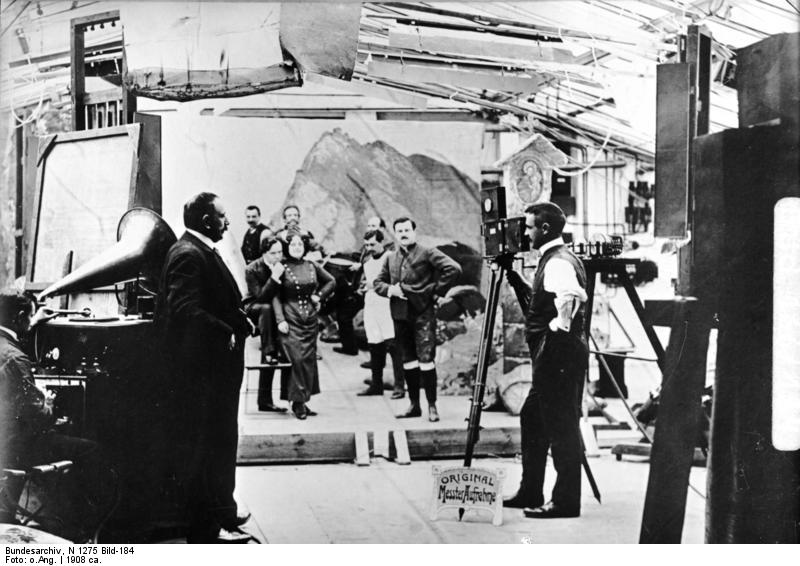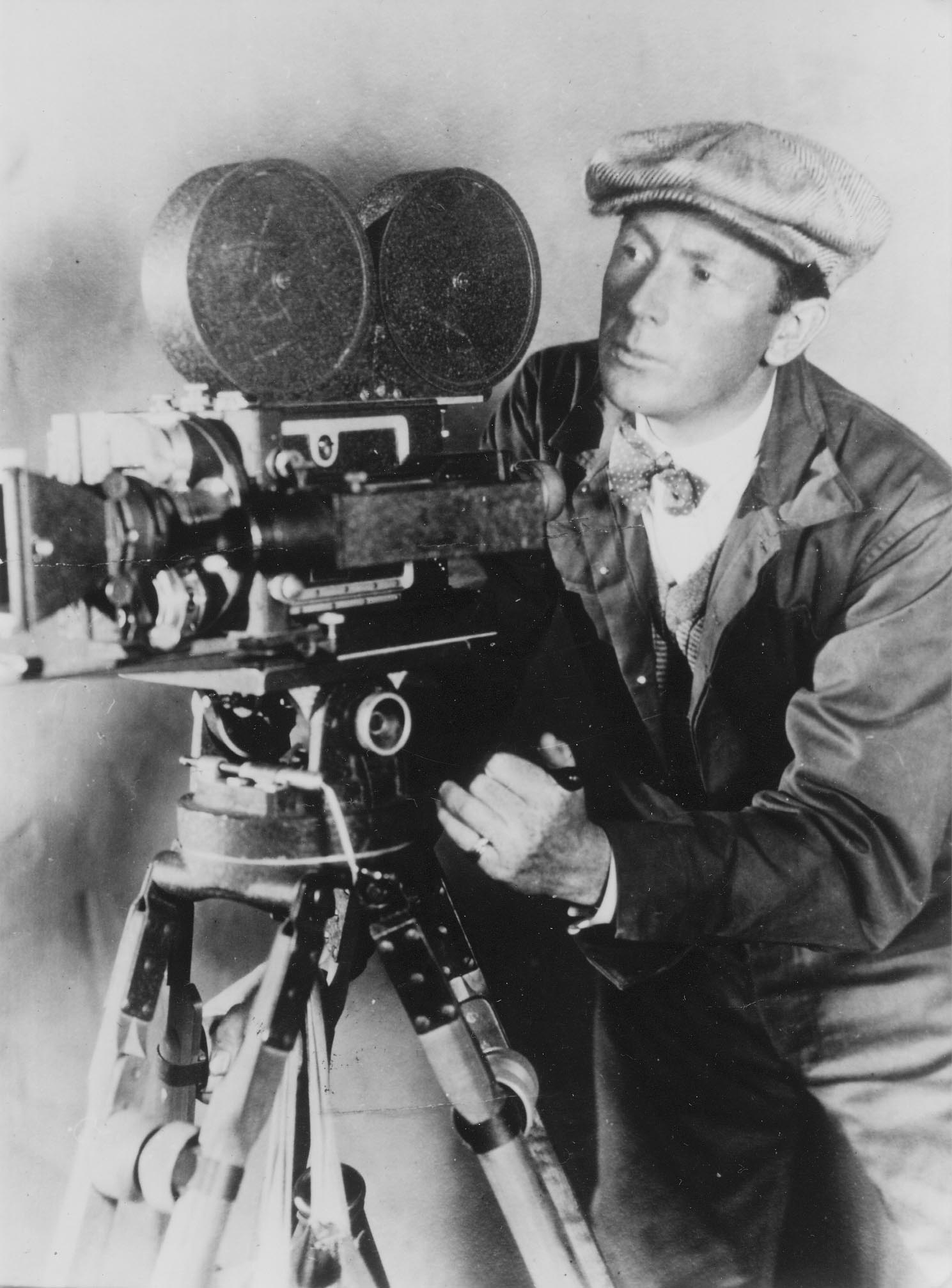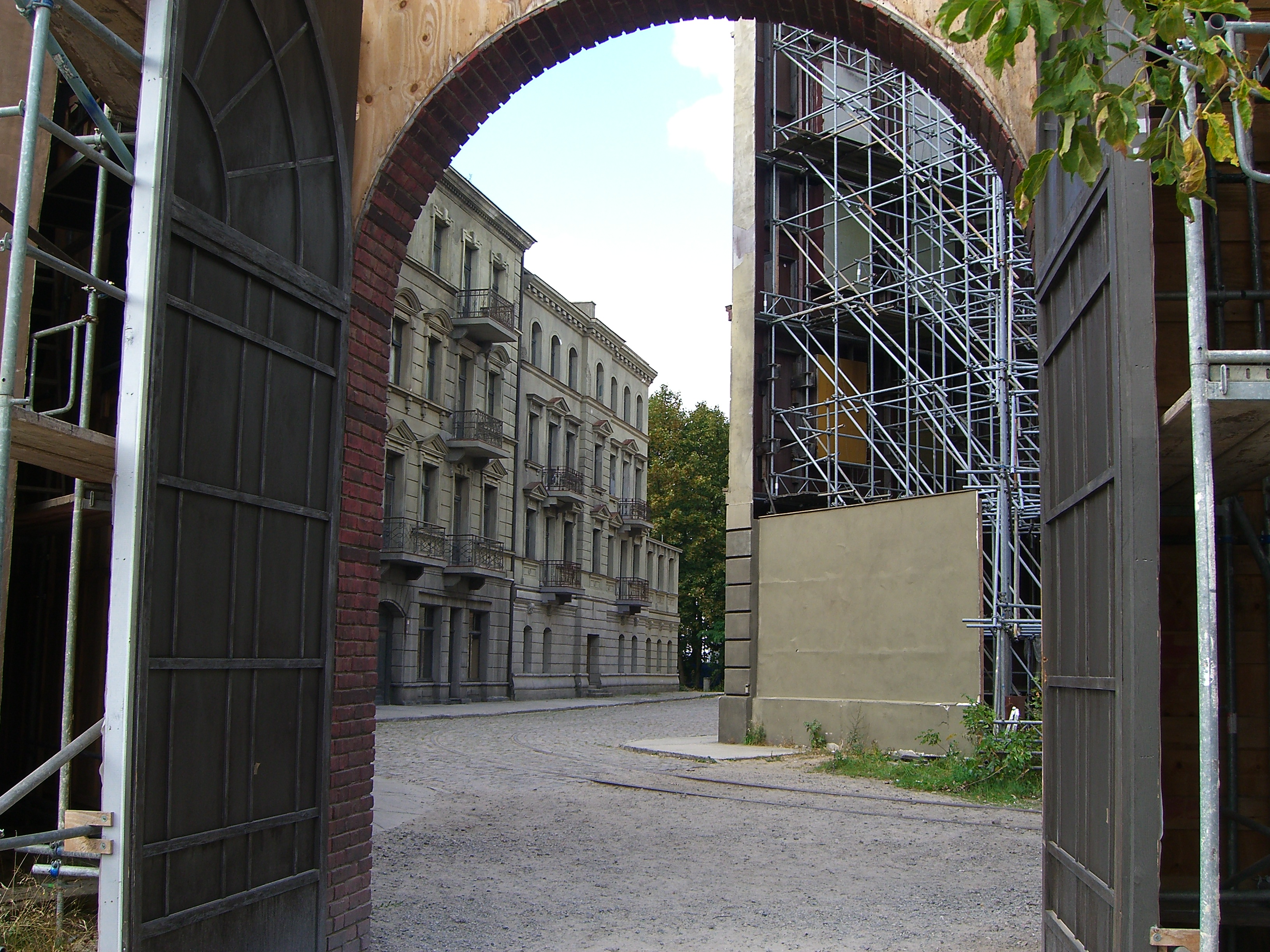|
Erich Pommer
Erich Pommer (20 July 1889 – 8 May 1966) was a German-born film producer and executive. Pommer was perhaps the most powerful person in the German and European film industries in the 1920s and early 1930s. As producer, Erich Pommer was involved in the German Expressionist film movement during the silent era. As the head of production at Decla Film, Decla-Bioskop, and, from 1924 to 1926, at UFA, Pommer was responsible for many of the best known movies of the Weimar Republic such as '' The Cabinet of Dr. Caligari'' (1920), ''Dr. Mabuse, the Gambler'' (1922), '' Die Nibelungen'' (1924), ''Michael'' (1924), '' Der Letzte Mann / The Last Laugh'' (1924), '' Variety'' (1925), '' Tartuffe'' (1926), '' Manon Lescaut'' (1926), '' Faust'' (1926), ''Metropolis'' (1927) and '' The Blue Angel'' (1930). He later worked in American exile before returning to Germany to help rebuild the German film industry after World War II. Early life and career Pommer was born in Hildesheim, Province of ... [...More Info...] [...Related Items...] OR: [Wikipedia] [Google] [Baidu] |
Province Of Hanover
The Province of Hanover (german: Provinz Hannover) was a province of the Kingdom of Prussia and the Free State of Prussia from 1868 to 1946. During the Austro-Prussian War, the Kingdom of Hanover had attempted to maintain a neutral position, along with some other member states of the German Confederation. After Hanover voted in favour of mobilising confederation troops against Prussia on 14 June 1866, Prussia saw this as a just cause for declaring war; the Kingdom of Hanover was soon dissolved and annexed by Prussia. The private wealth of the dethroned House of Hanover was then used by Otto von Bismarck to finance his continuing efforts against Ludwig II of Bavaria. In 1946, the British military administration recreated the State of Hanover based on the former Kingdom of Hanover; but within the year, at the instigation of the German leadership, it was merged into the new state () of Lower Saxony—along with the states of Oldenburg, Brunswick, and Schaumburg-Lippe—wi ... [...More Info...] [...Related Items...] OR: [Wikipedia] [Google] [Baidu] |
Carl Froelich
Carl August Hugo Froelich (5 September 1875 – 12 February 1953) was a German film pioneer and film director. He was born and died in Berlin. Biography Apparatus builder and cameraman From 1903 Froelich was a colleague of Oskar Messter, one of the advance guard of German cinema, for whom initially he worked on the construction of cinematographic equipment. As cameraman for Messter's weekly newsreels he filmed among many other things the aftermath of a train accident on the Berlin elevated railway on 28 September 1908, one of the worst transport disasters of the time. Film director and producer Between 1912 and 1951 he made 77 films. In 1913 Froelich made his directorial debut with ''Richard Wagner''. In 1920 he founded his own production company, Froelich-Film GmbH, among the productions of which were ''Kabale und Liebe'' (1921), '' Die Brüder Karamasoff'' (1922), and '' Mutter und Kind'' (1924). During these years he often filmed with the actress Henny Porten, who made her s ... [...More Info...] [...Related Items...] OR: [Wikipedia] [Google] [Baidu] |
Friedrich Wilhelm Murnau
Friedrich Wilhelm Murnau (born Friedrich Wilhelm Plumpe; December 28, 1888March 11, 1931) was a German film director, producer and screenwriter. He was greatly influenced by Schopenhauer, Nietzsche, Shakespeare and Ibsen plays he had seen at the age of 12, and became a friend of director Max Reinhardt. During World War I he served in the Imperial German Army, initially as an infantry company commander on the Eastern Front. Murnau later transferred to the German Army's Flying Corps, as an observer/ gunner, and survived several crashes without any severe injuries. One of Murnau's acclaimed works is the film ''Nosferatu'' (1922), an adaptation of Bram Stoker's ''Dracula''. Although not a commercial success, owing to copyright issues with Stoker's estate, the film is considered a masterpiece of German Expressionist cinema. He later directed the film '' The Last Laugh'' (1924), as well as a 1926 interpretation of Goethe's ''Faust''. He emigrated to Hollywood in 1926, where he joi ... [...More Info...] [...Related Items...] OR: [Wikipedia] [Google] [Baidu] |
Phantom (1922 Film)
''Phantom'' is a 1922 German romantic fantasy film directed by F. W. Murnau. It is an example of German Expressionist film and has a surreal, dreamlike quality.. Plot The film is told in an extended flashback. Lorenz Lubota (Alfred Abel), is a clerk in a minor government office, an aspiring poet, and a member of a family headed by a worrisome mother who has a tense relationship with a daughter, Melanie, whom the mother believes works as a prostitute. One day, while Lorenz is walking to work, a woman ( Lya De Putti) driving two white horses hits him in the road, knocking him to the ground. Physically, he is unharmed, but from that point forward, the woman in the carriage (named Veronika) consumes his every thought. His obsession with Veronika costs him his job when he fails to show up for work and threatens his boss for accusing him of stalking her. Believing his poems will be published and anticipating a meeting with a publisher, Lorenz asks his Aunt Schwabe (Grete Berger)� ... [...More Info...] [...Related Items...] OR: [Wikipedia] [Google] [Baidu] |
The Haunted Castle (1921 Film)
''The Haunted Castle'' ( ger, Schloß Vogelöd, lit=Castle Vogelöd) is a silent mystery film directed by Friedrich Wilhelm Murnau. Plot summary A company of men meet for a hunt lasting several days at Castle Vogelöd, being hosted by Lord von Vogelschrey. Because of the rain they spend their time inside. An uninvited guest shows up: Count Johann Oetsch. He's suspected of having shot his brother Peter a few years ago. This rumour gets nourished by a retired Judge of the District Court. The widow of the murder victim also arrives, along with her new husband, Baron Safferstätt. Another guest is announced: Father Faramund, a friend of the deceased husband. In the following days, Count Oetsch and the Baroness accuse one another of the murder. Flashbacks show that the Baroness' marriage wasn't harmonious. Her first husband became obsessed by spiritualism. She wished for something evil to happen to him, and their guest Baron Safferstätt shot him. She married the Baron, but they f ... [...More Info...] [...Related Items...] OR: [Wikipedia] [Google] [Baidu] |
Studio Babelsberg
Babelsberg Film Studio (german: Filmstudio Babelsberg), located in Potsdam-Babelsberg outside Berlin, Germany, is the second oldest large-scale film studio in the world only preceded by the Danish Nordisk Film (est. 1906), producing films since 1912. With a total area of about and a studio area of about it is Europe's largest film studio. Hundreds of films, including Fritz Lang's ''Metropolis'' and Josef von Sternberg's ''The Blue Angel'' were filmed there. More recent productions include ''V for Vendetta'', '' Captain America: Civil War'', ''Æon Flux'', ''The Bourne Ultimatum'', ''Valkyrie'', ''Inglourious Basterds'', '' Cloud Atlas'', '' The Grand Budapest Hotel'', ''The Hunger Games'', ''Isle of Dogs'' and ''The Matrix Resurrections''. Today, Studio Babelsberg remains operational mainly for feature film productions. It also acts as producer on German productions and co-producer on international high-budget productions. Since January 2022 it has been owned by TPG Real Esta ... [...More Info...] [...Related Items...] OR: [Wikipedia] [Google] [Baidu] |
Jules Greenbaum
Jules Greenbaum (5 January 1867 – 1 November 1924) was a German pioneering film producer. He founded the production companies Deutsche Bioscope, Deutsche Vitascope and Greenbaum-Film and was a dominant figure in German cinema in the years before the First World War. He is also known for his early experiments with sound films around twenty years before the success of '' The Jazz Singer'' made them a more established feature of cinema. Early career and Deutsche Bioscope Greenbaum was born in Berlin in 1867 as Julius Grünbaum. He married Emma Karstein in c1887 and moved to Chicago in the United States, where his first son Georg was born 1 November 1889. He originally worked in the textile industry, but on his return to Berlin in 1895 aged around 42 Greenbaum moved into the newly established film business and founded Deutsche Bioscope (german: Deutsche Bioskop) in 1899. This name has various contemporary spellings, including Bioscope, Bioskope and Bioskop. Greenbaum acquired a cam ... [...More Info...] [...Related Items...] OR: [Wikipedia] [Google] [Baidu] |
Robert Wiene
Robert Wiene (; 27 April 1873 – 17 July 1938) was a film director of the silent era of German cinema. He is particularly known for directing the German silent film ''The Cabinet of Dr. Caligari'' and a succession of other German Expressionism, expressionist films. Wiene also directed a variety of other films of varying styles and genres. Following the Nazi rise to power in Germany, Wiene, who was of Jewish descent, fled into exile. Biography Early life Robert Wiene was born in Breslau, in the German Province of Silesia (now the city of Wrocław in Poland), as the elder son of the successful theatre actor Carl Wiene. His younger brother Conrad Wiene, Conrad also became an actor, but Robert Wiene at first studied law at the University of Berlin. Career in Germany In 1908 he also started to act, at first in small parts on stage. His first involvement with film was in 1912, writing and (possibly) directing ''Die Waffen der Jugend''. His most memorable feature films are the horror ... [...More Info...] [...Related Items...] OR: [Wikipedia] [Google] [Baidu] |
Die Brillantenschiff
Die, as a verb, refers to death, the cessation of life. Die may also refer to: Games * Die, singular of dice, small throwable objects used for producing random numbers Manufacturing * Die (integrated circuit), a rectangular piece of a semiconductor wafer * Die (manufacturing), a material-shaping device * Die (philately) * Coin die, a metallic piece used to strike a coin * Die casting, a material-shaping process ** Sort (typesetting), a cast die for printing * Die cutting (web), process of using a die to shear webs of low-strength materials * Die, a tool used in paper embossing * Tap and die, cutting tools used to create screw threads in solid substances * Tool and die, the occupation of making dies Arts and media Music * ''Die'' (album), the seventh studio album by rapper Necro * Die (musician), Japanese musician, guitarist of the band Dir en grey * DJ Die Daniel Robert Kausman, (born 13 October 1972), better known by his stage name DJ Die, is an English DJ and music ... [...More Info...] [...Related Items...] OR: [Wikipedia] [Google] [Baidu] |
Fritz Lang
Friedrich Christian Anton Lang (; December 5, 1890 – August 2, 1976), known as Fritz Lang, was an Austrian film director, screenwriter, and producer who worked in Germany and later the United States.Obituary ''Variety'', August 4, 1976, p. 63. One of the best-known ''émigrés'' from Germany's school of Expressionism, he was dubbed the "Master of Darkness" by the British Film Institute. He has been cited as one of the most influential filmmakers of all time. Lang's most celebrated films include the groundbreaking futuristic ''Metropolis'' (1927) and the influential '' M'' (1931), a film noir precursor. His 1929 film '' Woman in the Moon'' showcased the use of a multi-stage rocket, and also pioneered the concept of a rocket launch pad (a rocket standing upright against a tall building before launch having been slowly rolled into place) and the rocket-launch countdown clock. [...More Info...] [...Related Items...] OR: [Wikipedia] [Google] [Baidu] |
Rudolf Meinert
Rudolf Meinert (1882–6 March 1943) was an Austrian screenwriter, film producer and director. Meinert was born Rudolf Bürstein in Vienna, but worked for most of his career in the German film industry. He became well-established as the producer/director of silent crime films. In the immediate post-First World War period, Meinert was head of production at the German studio Decla after his own production unit Meinert-Film was taken over by the larger outfit. Meinert, rather than Erich Pommer, is sometimes credited as the producer behind Decla's revolutionary '' The Cabinet of Dr. Caligari'' (1920). Following the Nazi takeover of power in Germany, Meinert, who was Jewish, went into exile in the Netherlands, however he returned to Austria. He moved to France in 1937 and live there until he was caught, sent to Drancy internment camp and transported to Majdanek concentration camp on 6 March 1943, where he died. [...More Info...] [...Related Items...] OR: [Wikipedia] [Google] [Baidu] |






